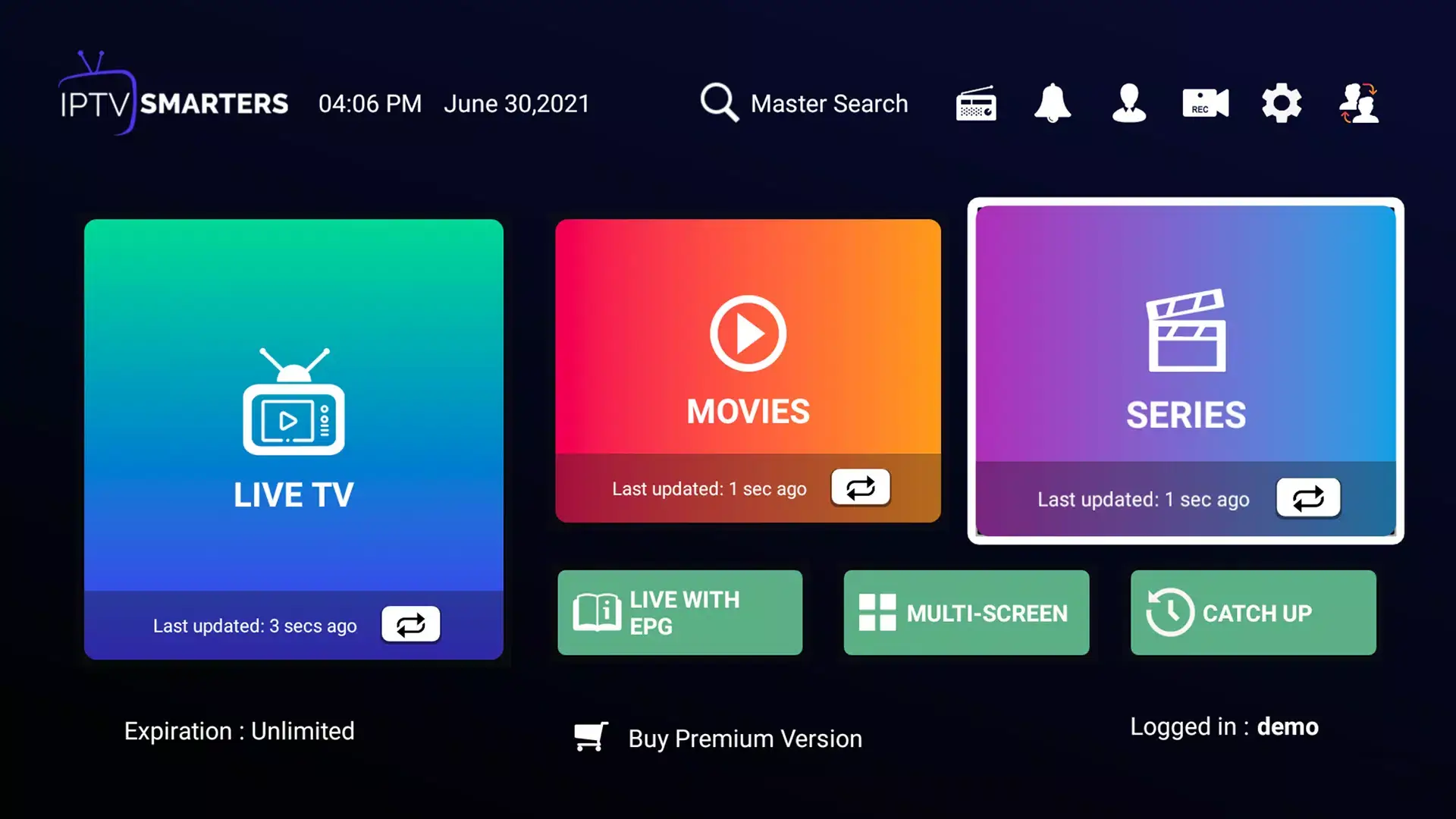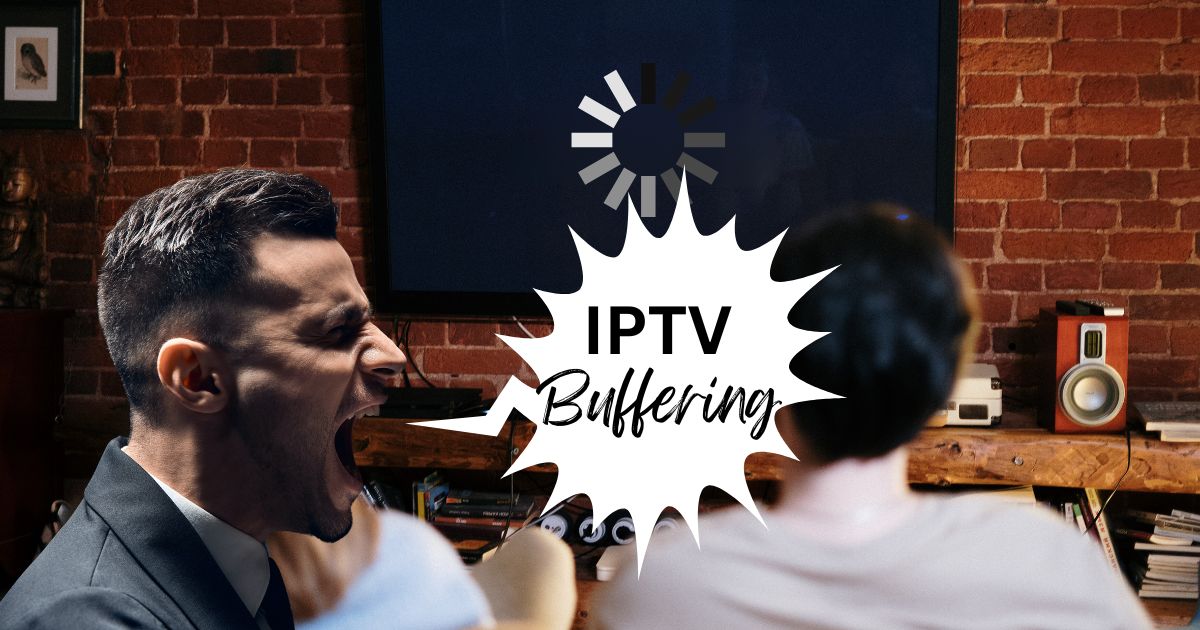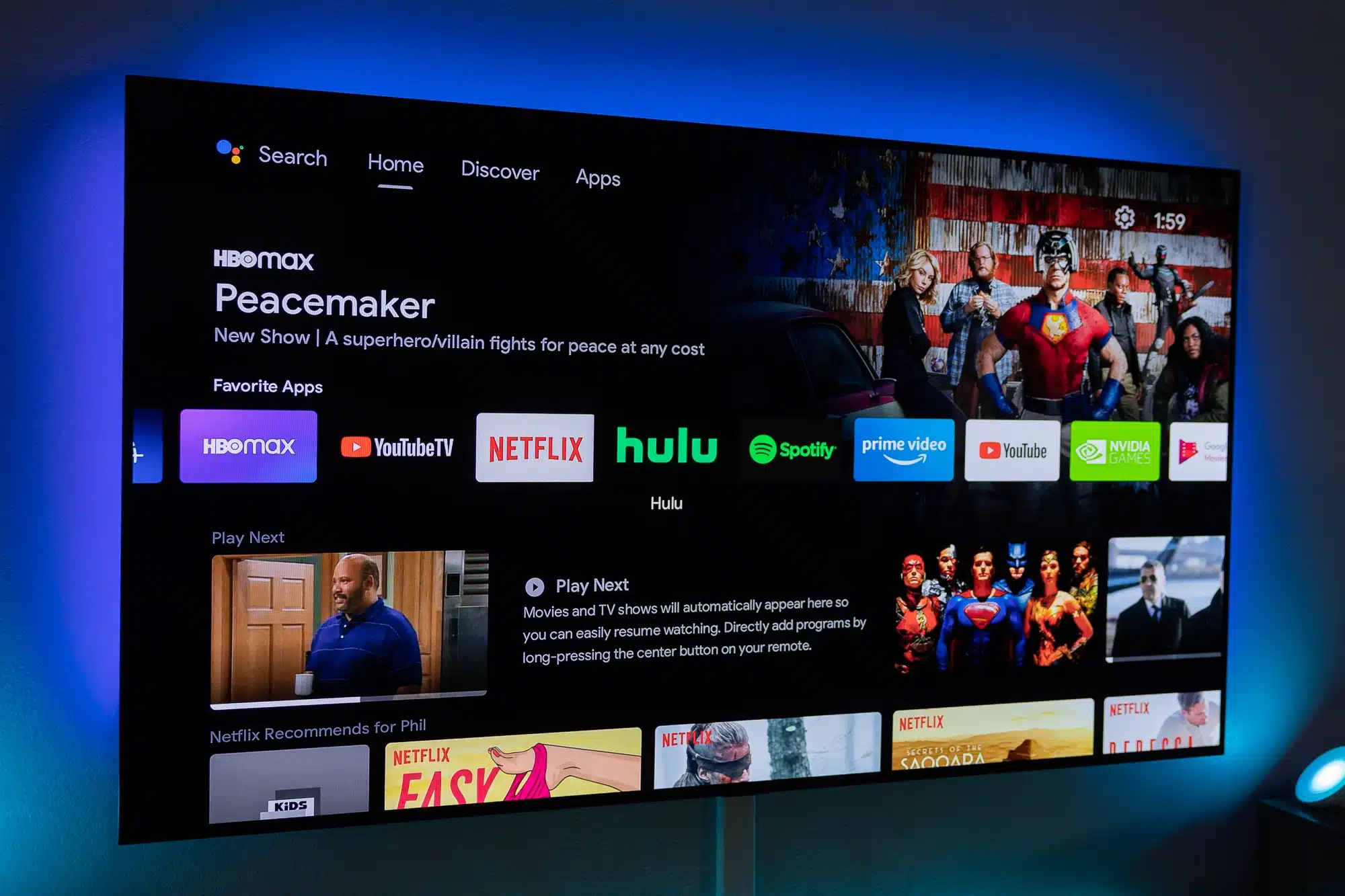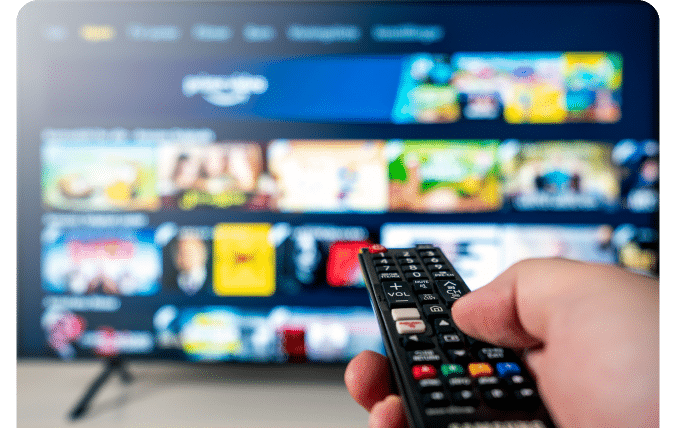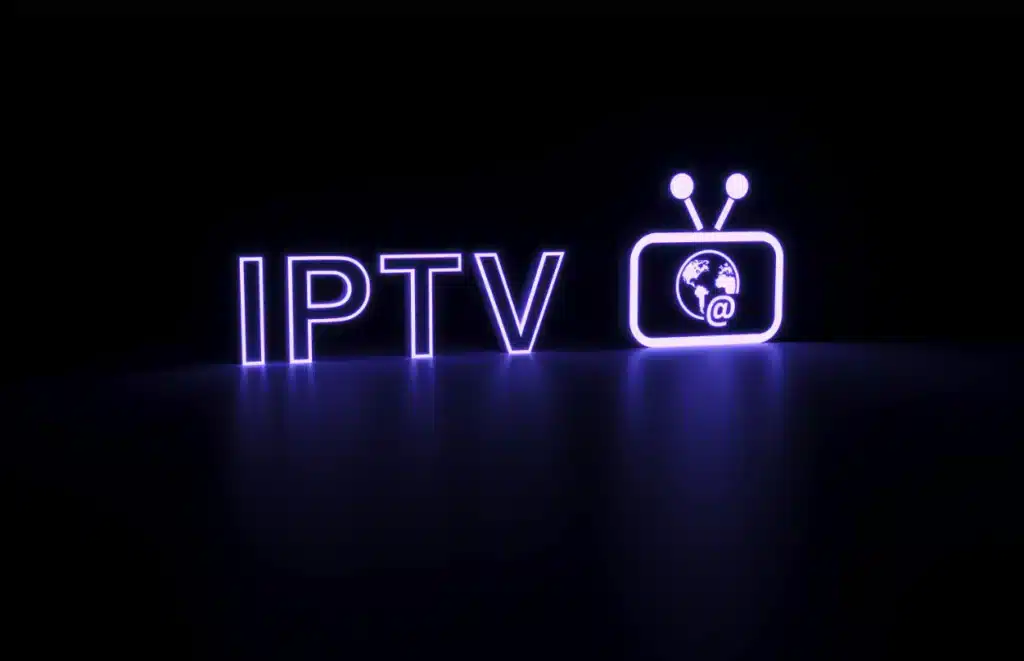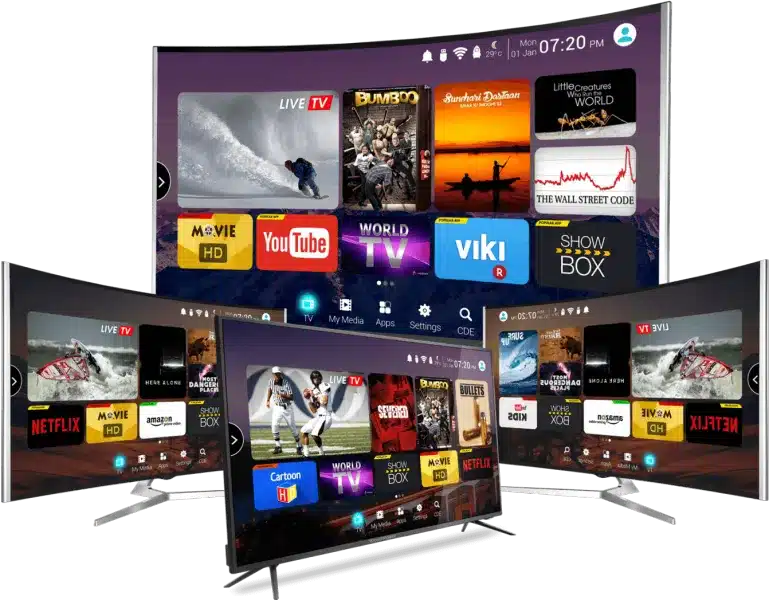What is IPTV?
IPTV stands for Internet Protocol Television. It refers to a system where television services are delivered through the internet, instead of traditional terrestrial, satellite, or cable formats. Understanding what is IPTV involves recognizing it as a method of streaming television content using an internet connection, providing users with an alternative to conventional broadcasting methods.
Importance and Relevance of IPTV
The importance of IPTV lies in its ability to offer a more flexible, user-oriented approach to consuming media. Unlike traditional TV, IPTV allows viewers to watch their favorite shows and movies whenever they want, thanks to features like Video on Demand (VOD) and catch-up TV. This relevance has only grown as internet connectivity has improved globally, making IPTV accessible to a broader audience.
Brief History of IPTV
IPTV technology has evolved significantly since its inception. It began gaining traction in the early 2000s, coinciding with the rise of broadband internet. Early adopters recognized the potential of using the internet to transmit television content. Over the years, advancements in internet speeds and streaming technology have made IPTV a viable alternative to traditional television, with increasing numbers of users worldwide.
Technical Specifications
How IPTV Works
IPTV works by converting traditional TV signals into digital signals that are transmitted over the internet. These signals are then decoded by a set-top box or a compatible device, allowing the user to view the content on their television or other screens. The process involves streaming content directly to the user, which can be done live or on demand.
IPTV Protocols
Several protocols are used in IPTV to ensure efficient and high-quality streaming. The most common ones include:
- HTTP Live Streaming (HLS): Developed by Apple, HLS is widely used due to its compatibility with a range of devices.
- Real-Time Messaging Protocol (RTMP): Initially developed by Macromedia, RTMP is now owned by Adobe and is used for streaming audio, video, and data over the internet.
- Real-Time Streaming Protocol (RTSP): Used for controlling streaming media servers and supporting live streaming.
Required Hardware
To access IPTV, users typically need a set-top box, which decodes the internet signals into a format that can be displayed on a TV. Additionally, smart TVs, smartphones, tablets, and computers with appropriate apps or software can also be used to access IPTV services.
Internet Speed and Bandwidth Requirements
A reliable internet connection is crucial for a seamless IPTV experience. The minimum recommended speed for standard definition content is around 3-4 Mbps, while high-definition (HD) content requires at least 5-8 Mbps. For ultra-high-definition (UHD) or 4K content, a speed of 25 Mbps or higher is recommended to avoid buffering and ensure smooth streaming.
Types and Categories
Live Television
Live television via IPTV functions similarly to traditional broadcasting, offering real-time content such as news, sports, and live events. This category is popular among users who want to stay updated with current happenings without relying on conventional cable services.
Time-Shifted Media
Time-shifted media allows users to watch TV programs after they have been broadcast. This includes services like catch-up TV, where users can access previously aired content for a certain period. It provides flexibility for those who cannot watch shows during their original airtime.
Video on Demand (VOD)
VOD is one of the most attractive features of IPTV. It enables users to select and watch videos from an extensive library at their convenience. This category includes movies, TV series, and other video content that users can play, pause, and resume as they wish.
Catch-up TV
Catch-up TV is a type of time-shifted media that specifically refers to the ability to watch content that has been broadcast in the recent past. It typically covers a period of a few days to a week, allowing users to catch up on missed episodes or events.
Applications
Home Entertainment
IPTV is revolutionizing home entertainment by providing a diverse range of content directly to viewers’ living rooms. With features like VOD, live TV, and catch-up services, users can tailor their viewing experiences to their preferences, enjoying high-quality content on demand.
Educational Platforms
IPTV is also making inroads in the education sector. Educational institutions use IPTV to stream lectures, educational programs, and other instructional content to students. This application facilitates remote learning and provides students with access to a wealth of resources beyond the traditional classroom.
Corporate Uses
In the corporate world, IPTV subscription is used for various purposes, including internal communications, training, and presentations. Companies can stream live events, conduct training sessions, and share important information with employees across different locations, enhancing communication and collaboration.
Public Venues
Public venues such as hotels, hospitals, and airports utilize IPTV subscription to provide entertainment and information to guests and visitors. In these settings, IPTV systems deliver a range of channels and interactive services, enhancing the overall experience and satisfaction of users.
Benefits
Cost Efficiency
One of the primary benefits of IPTV is its cost efficiency. Traditional cable and satellite TV services often come with high subscription fees and installation costs. In contrast, IPTV services are generally more affordable, offering various pricing models that cater to different budgets.
Flexibility and Convenience
IPTV provides unparalleled flexibility and convenience. Users can watch their favorite shows and movies anytime, anywhere, as long as they have an internet connection. This flexibility is particularly appealing to those with busy schedules or those who travel frequently.
Wide Range of Content
With IPTV, users have access to a vast array of content, including international channels, niche genres, and exclusive programming. This extensive selection ensures that there is something for everyone, catering to diverse tastes and preferences.
Enhanced User Experience
IPTV offers an enhanced user experience through features such as interactive program guides, video on demand, and personalized recommendations. These features make it easier for users to discover and enjoy content, improving overall satisfaction.
Challenges and Limitations
Legal and Licensing Issues
One of the significant challenges facing IPTV is the legal and licensing landscape. Broadcasting copyrighted content without proper licensing can lead to legal issues. Service providers must navigate these complexities to ensure they are operating within the law.
Quality and Reliability Concerns
Quality and reliability can be issues with IPTV, particularly in regions with unstable internet connections. Buffering, lag, and poor video quality can detract from the viewing experience, making it essential for providers to ensure robust and reliable service.
Technical Challenges
Technical challenges such as compatibility with different devices, integration with existing infrastructure, and maintaining service quality can pose difficulties for IPTV providers. Overcoming these challenges requires continuous innovation and investment in technology.
Market Competition
The IPTV market is highly competitive, with numerous providers vying for market share. This competition can make it challenging for new entrants to establish themselves and for existing providers to maintain their customer base. Providers must differentiate themselves through unique offerings and high-quality service.
Latest Innovations
Advanced Streaming Technologies
Recent advancements in streaming technologies have significantly improved the quality and efficiency of IPTV services. Technologies like adaptive bitrate streaming ensure that users receive the best possible quality based on their internet connection, minimizing buffering and interruptions.
Interactive Features
Interactive features such as live chat, polls, and social media integration are becoming increasingly common in IPTV services. These features enhance user engagement, making the viewing experience more interactive and enjoyable.
Personalized Content
Personalization is a major trend in IPTV. Providers are using data analytics and machine learning to offer personalized recommendations, ensuring that users discover content tailored to their interests. This personalization enhances user satisfaction and retention.
Integration with Smart Home Devices
IPTV is being integrated with smart home devices, allowing users to control their viewing experience through voice commands and smart assistants. This integration adds a layer of convenience and enhances the overall user experience, making IPTV an integral part of the smart home ecosystem.
Future Prospects
Market Growth Predictions
The IPTV market is expected to continue its rapid growth in the coming years. Increasing internet penetration, advancements in streaming technology, and the rising demand for on-demand content are driving this growth. Market analysts predict substantial increases in IPTV subscribers and revenue.
Technological Advancements
Future technological advancements will likely focus on improving streaming quality, enhancing interactivity, and integrating with emerging technologies like virtual reality (VR) and augmented reality (AR). These advancements will further enhance the appeal of IPTV services.
Potential Impact on Traditional TV
As IPTV continues to gain popularity, its impact on traditional television is becoming more pronounced. Many viewers are shifting away from cable and satellite TV in favor of the flexibility and variety offered by IPTV. This trend is expected to continue, leading to significant changes in the television industry.
Comparative Analysis
IPTV vs. Traditional Cable TV
IPTV offers several advantages over traditional cable TV, including greater flexibility, a wider range of content, and often lower costs. While cable TV requires physical infrastructure and is limited by geographical constraints, IPTV can be accessed anywhere with an internet connection.
IPTV vs. Satellite TV
Compared to satellite TV, IPTV provides more consistent quality and fewer weather-related disruptions. Satellite TV can be affected by adverse weather conditions, leading to signal loss or degradation. IPTV, on the other hand, relies on internet connectivity, which can be more reliable.
IPTV vs. OTT Services
Over-the-top (OTT) services like Netflix and Amazon Prime Video offer content over the internet but are not considered IPTV because they do not provide live TV channels. IPTV combines the benefits of OTT services with live TV, offering a more comprehensive viewing experience.
IPTV vs. Streaming Services
Streaming services and IPTV share many similarities, but IPTV premium typically offers more traditional TV-like experiences, including live channels and scheduled programming. Streaming services often focus on on-demand content and original programming.

User Guides and Tutorials
What is IPTV ?
Setting Up IPTV at Home
Setting up IPTV at home involves a few key steps:
- Choose a Service Provider: Research and select an IPTV service provider that meets your needs.
- Get the Required Hardware: Ensure you have a compatible device, such as a smart TV, set-top box, or streaming device.
- Install the IPTV App: Download and install the IPTV app provided by your service provider.
- Configure Your Connection: Follow the instructions to connect your device to the internet and configure the IPTV settings.
- Start Watching: Once set up, you can start exploring and enjoying your IPTV content.
Choosing the Right IPTV Service Provider
When choosing an IPTV service provider, consider the following factors:
- Content Library: Ensure the provider offers a wide range of content that matches your interests.
- Quality and Reliability: Look for providers known for high-quality streaming and reliable service.
- Pricing Plans: Compare different pricing plans to find one that fits your budget.
- Customer Support: Choose a provider with good customer support to help with any issues you may encounter.
Troubleshooting Common Issues
Common IPTV issues and their solutions include:
- Buffering: Ensure your internet connection is stable and fast enough for streaming. Reduce the number of connected devices if necessary.
- Poor Video Quality: Check your internet speed and adjust the streaming quality settings within the app.
- Connection Problems: Restart your device and router. If the issue persists, contact your service provider for assistance.
Maximizing IPTV Performance
To maximize IPTV performance:
- Use a Wired Connection: Whenever possible, use a wired Ethernet connection instead of Wi-Fi for more stable streaming.
- Optimize Network Settings: Configure your router for optimal performance, including setting up Quality of Service (QoS) for streaming devices.
- Regular Updates: Keep your IPTV app and device firmware up to date to benefit from the latest improvements and features.
Conclusion
Recap of Key Points
IPTV is a transformative technology that delivers television content via the internet, offering flexibility, cost efficiency, and a vast range of content. With various types such as live TV, time-shifted media, and VOD, IPTV caters to diverse viewing preferences.
Future Implications of IPTV
The future of IPTV looks promising, with continued market growth, technological advancements, and increasing user adoption. As more viewers transition from traditional TV to IPTV, the industry will continue to evolve, offering even more innovative and personalized viewing experiences.
Call to Action for Further Education
For those interested in exploring IPTV further, consider researching different service providers, experimenting with various apps, and staying updated on the latest trends and technologies in the field. Embrace the flexibility and convenience of IPTV to enhance your viewing experience.

